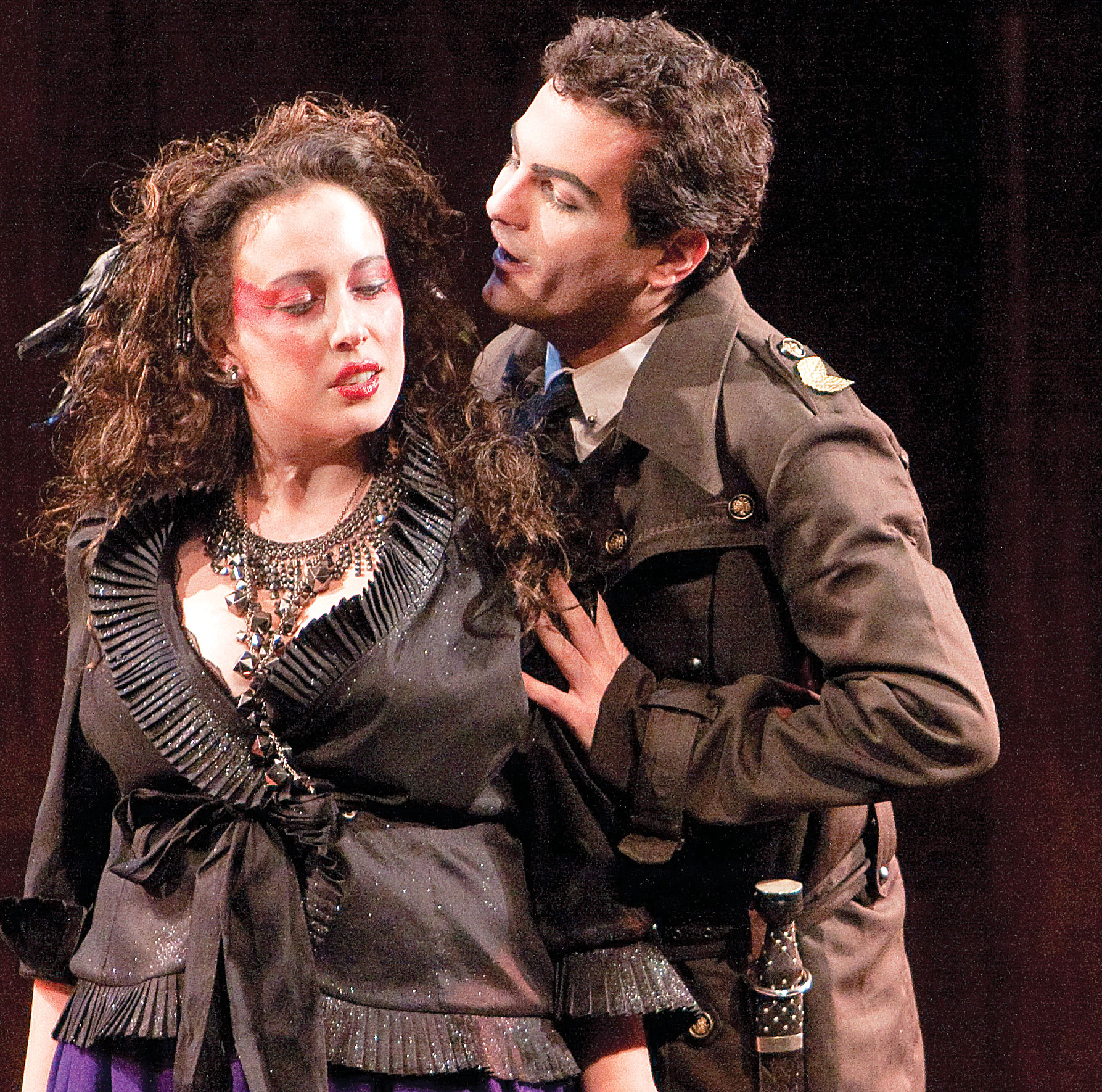A plot oozing with infidelity, sexual escapades and heartache, “Giasone” may resemble an episode of “Access Hollywood” more than your stereotypical opera.
Tonight, Opera UCLA presents the West Coast premier of “Giasone”, a 17th-century baroque opera produced by Peter Kazaras and conducted by Stephen Stubbs.
For over three and a half centuries, the opera has left audiences shocked by its scandalous and oftentimes crude plot.
“It’s about a very self-indulgent man who is a complete womanizer and ends up getting himself into a lot of trouble,” said Lauren Edwards, a first-year graduate student in vocal performance. Edwards is one of two female performers cast for the role of Giasone.
Both comedic and serious, the opera tells the story of Giasone, who dallies with Princess Isifile, fathering two children. Growing restless, Giasone embarks on a yearlong liaison with Medea. Falling in love with Medea under her witch’s spell, Giasone must ultimately address his guilt over leaving Isifile, who relentlessly begs his return.
“It takes a tragic story from mythology and turns it into a twisted comedy,” said Juliana Gondek, a professor of voice at UCLA.
Kazaras said “Giasone” is a potpourri of early opera elements ““ dance, recited segments of song, lyrical segments ““ presented in a fun and unexpected way.
“You have girls dressed as boys,” Kazaras said. “You have a leading man who in one cast is a countertenor (a higher voice) and in another cast is a woman. In the original version of this there’s a role basically written for a drag queen. There’s a role written for a stuttering hunchback. … So this is not the normal cast of characters of most operas.”
Composed by Francesco Cavalli and adapted from a new critical edition by Ellen Rosand, “Giasone” remains one of the pioneering works of opera, one of the earliest operatic pieces ever written.
“As an art form, composers were just beginning to feel out opera at this point and figure out what it could be,” Gondek said. “So that’s going to very interesting to the audience to see an early prototype of an opera.”
“Giasone” was the most popular opera of the 17th century. Premiered in Venice in 1649, the work was more comparable to a Las Vegas act than a fine work of art.
“By 1649, Venice was already a well-known tourist trap,” Kazaras said. “The motto was kind of, “˜What happens in Venice, stays in Venice.’ This was one of the first places where theaters were built, which clearly were not just about having nobles. Anybody who could pay the price of a ticket could come.”
People expected to eat, drink and perhaps even have what Kazaras called “friendly interaction” while watching the show.
By 1700, one critic said that the libretto, or text, of “Giasone” was single-handedly responsible for the destruction of Italian poetry, because it was so crude and such a twisted farce of a myth.
Kazaras, who has been a fan of Cavalli since his days in college, decided to produce the show for UCLA Opera. With funding from the Maxwell H. Gluck Foundation keeping the program alive, the production has been in the works since third week of fall quarter.
Rehearsing on average eight hours a day, six days a week since winter quarter began, the cast of undergraduate and graduate singers have work schedules comparable to professional-level performers.
“I love the complete artwork of opera ““ acting, singing, costumes, art, instrumental music. It’s everything in the arts put into one,” Edwards said. “I keep going back every day even though it’s the most challenging thing in the world. … It’s like football for singers. It’s a really beautiful experience.”
In place of the UCLA Philharmonia, typically an 80-piece orchestra accompanying UCLA Opera, there will be a 5-piece orchestra composed of a pick-up group of students interested in baroque, a highly ornamented style of music prominent in the 17th and 18th centuries.
World-renowned baroque specialist Stephen Stubbs will conduct the orchestra. Stubbs, who lived in Europe for two decades playing with some of the world’s top baroque organizations, was invited by Kazaras to get involved with UCLA Opera’s rendition of “Giasone.”
“He has been a constant source of inspiration,” Kazaras said. “And this is direct contact with the highest levels of the profession for all of our students. So this has been a terrific thing for UCLA.”
Optimistic of the performance’s resonance with audiences, Edwards said she hopes “Giasone” will show that opera can make its way into the 21st century.
“I hope (people) laugh,” Edwards said. “I hope they come out with a feeling that opera can be absolutely hilarious. Sex, drugs and rock and roll, it’s all in opera.”
Withdrawing from his role as producer and professor, Kazaras said he just wants the audience to have a good time.
“You will figure out very quickly that is not like your normal evening at the opera,” Kazaras said.
